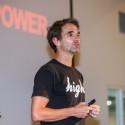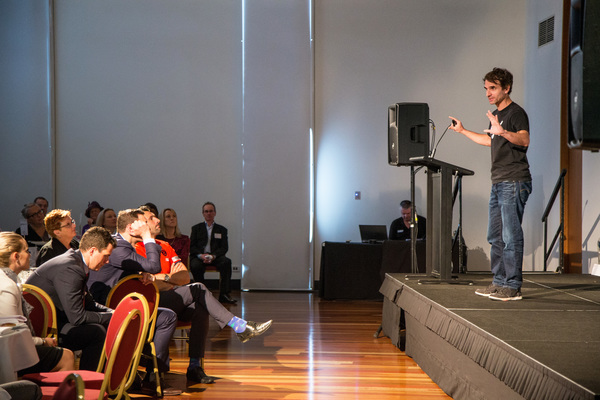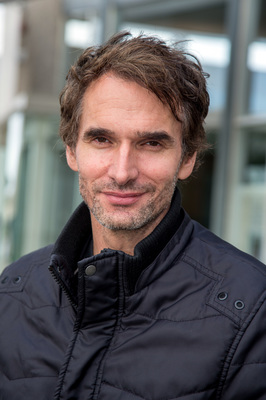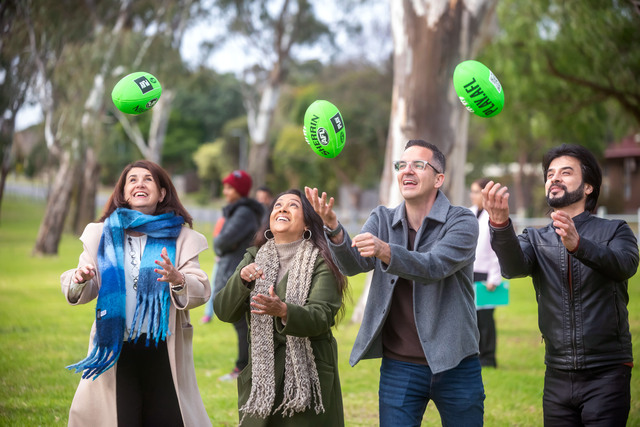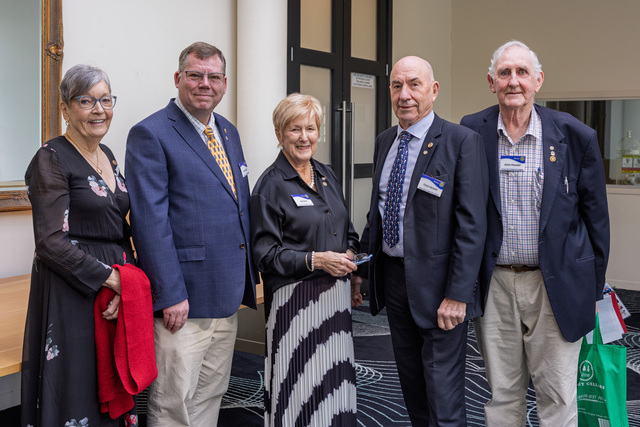By ALANA MITCHELSON
TODD Sampson is balanced upon a three-centimetre wide wire, with a 21-storey drop on either side of him. His eyes are fixed directly ahead.
After an initial shaky failed attempt, Sampson combines all of the skills he has trained his mind to learn over the past four years to examine the human brain’s potential.
He focuses all his energy on slowly making his way to the opposite building. As his feet find the concrete, the 46-year-old collapses into the foetal position and breaks down in tears.
Up until that moment in the Redesign My Brain television series, it is easy to forget that Todd Sampson is no superhuman.
But Sampson has challenged himself above and beyond the perceived capacity of most ‘ordinary’ people.
He has climbed a 120 metre rock-face in Utah’s Moab desert blindfolded, successfully performed a blindfolded Houdini water escape with 30 kilograms of chains and five combination locks, and completed a skywalk between two 21-storey buildings without a safety net.
The adventurer attributed his success in each instance to the science of brain plasticity – forced adaptation to dramatically improve and “redesign“ the brain.
He admitted to a packed room of Casey Cardinia businesspeople that his skywalk had not resulted in him conquering fear. But he had conquered the ultimate test of regulating his emotions to achieve a goal.
“For years science has told us that our brains are fixed, that our brains develop until we’re about 25 and then roughly around the age of 30 there is a steady decline,” he said.
“Now we know that this science is false. There is no biological reason for our brains to become less flexible as we age.
“All that separates the ordinary from the extraordinary is access. The human brain has the capability to hold information equivalent to 500 encyclopaedias. Everyone can be extraordinary.
“It comes down to us challenging the series of highways in our minds and to think more creatively rather than always travelling down the same road. That’s the revolution.”
Sampson said the most important skill in business today was “mental flexibility”, a characteristic that each of the most successful people to have walked the planet have in common.
He said there were a number of ways to improve brain plasticity including forced adaptation, visualisation techniques to improve memory capacity, and meditation to help concentration and stress.
“A great example of forced adaptation that everyone can try at home is to brush your teeth with your non-dominant hand. You’ll notice it’s a difficult task but the more you train your brain, the easier it becomes,” Sampson said.
“Lack of sleep is one of the biggest challenges. Less than eight hours a night over time reduces your IQ.
“We consolidate memories as we sleep and that’s when the plasticity process happens.”
Sampson explained that in many ways, advances in technology have not worked in our favour.
“One of the challenges our brains face in modern society is what is sometimes called ‘tech amnesia’,” he said.
“We used to do our own calculations, memorise phone numbers and map routes. The mobile phone has become a kind of surrogate brain.
“This works together with the Google effect. We no longer memorise facts; we only know how to find facts. But essentially Google gets smarter and we get dumber.”
Sampson described the fear he experienced during his skywalk as “excitement without breath”.
“The brave are not without fear. The part of the brain responsible for fear – the amygdala – is not born blank,” he said.
“We all live with levels of fear and anxiety. But it can be managed to the point where fear is no longer an issue.”

